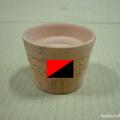None
4 stars
Record que sa primera vegada que vaig llegir 1984 vaig pensar que n'Orwell exagerava. Molt, de fet. Pensava que havia exagerat tot un poc, que sonava un poc postís. Després d'haver llegir aquest llibre veig que va quedar curt.
Sa revolució proletària ha estat esclafada per es totalitarismes en cada ocasió en què s'ha presentat, gent va morir enmig de misèria a una guerra civil que era alhora un conjunt de guerres revolucionàries. S'objectiu espanyol de sa política de tenir raó ha anat sempre per damunt des principis, independentment des rumb que agafassen ses coses. Sa difamació, empresonament, afusellament i maltracte de sa població obrera revolucionària és una constant històrica, i sebre-ho, compartir-ho, ensenyar-ho i recordar-ho és un deure que hauríem de compartir i que ha estat suprimit per sa classe política institucional.
Record que sa primera vegada que vaig llegir 1984 vaig pensar que n'Orwell exagerava. Molt, de fet. Pensava que havia exagerat tot un poc, que sonava un poc postís. Després d'haver llegir aquest llibre veig que va quedar curt.
Sa revolució proletària ha estat esclafada per es totalitarismes en cada ocasió en què s'ha presentat, gent va morir enmig de misèria a una guerra civil que era alhora un conjunt de guerres revolucionàries. S'objectiu espanyol de sa política de tenir raó ha anat sempre per damunt des principis, independentment des rumb que agafassen ses coses. Sa difamació, empresonament, afusellament i maltracte de sa població obrera revolucionària és una constant històrica, i sebre-ho, compartir-ho, ensenyar-ho i recordar-ho és un deure que hauríem de compartir i que ha estat suprimit per sa classe política institucional.


